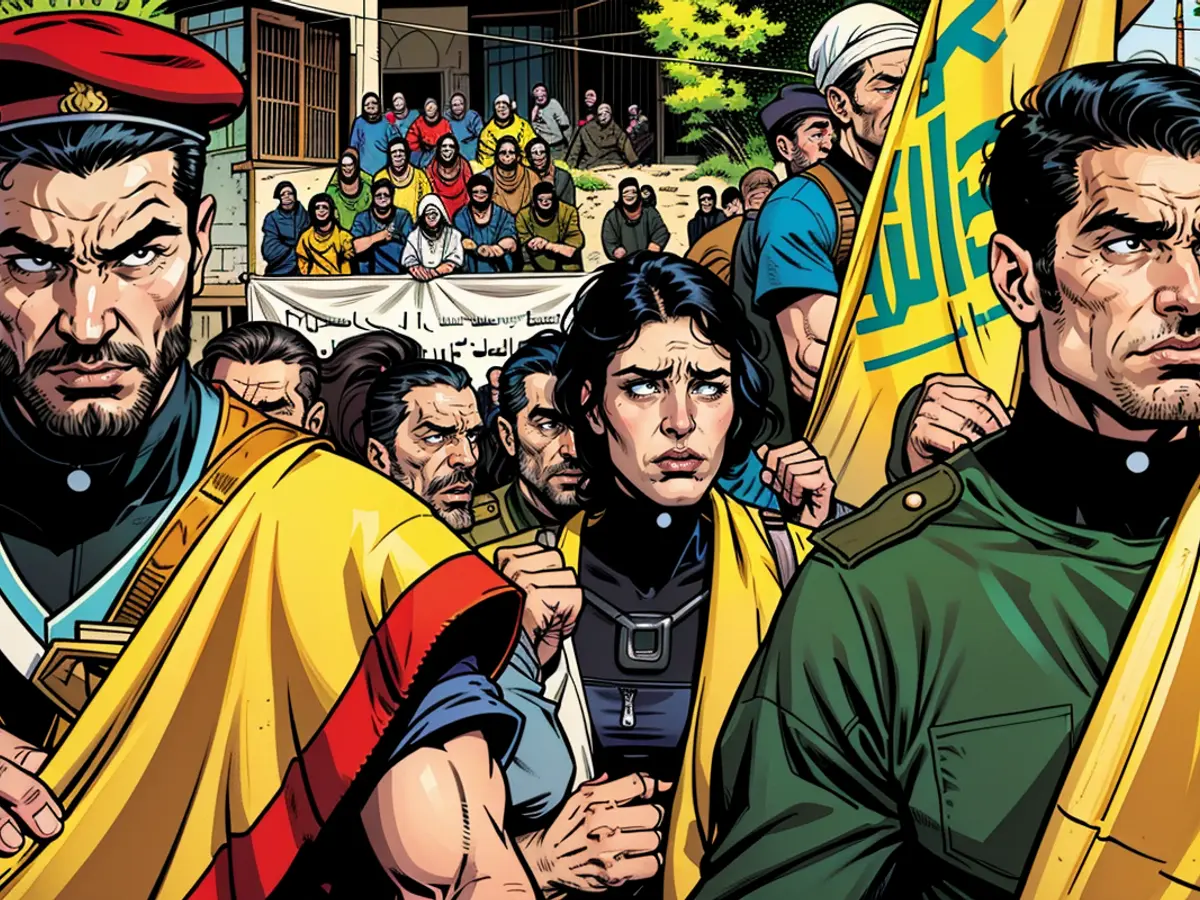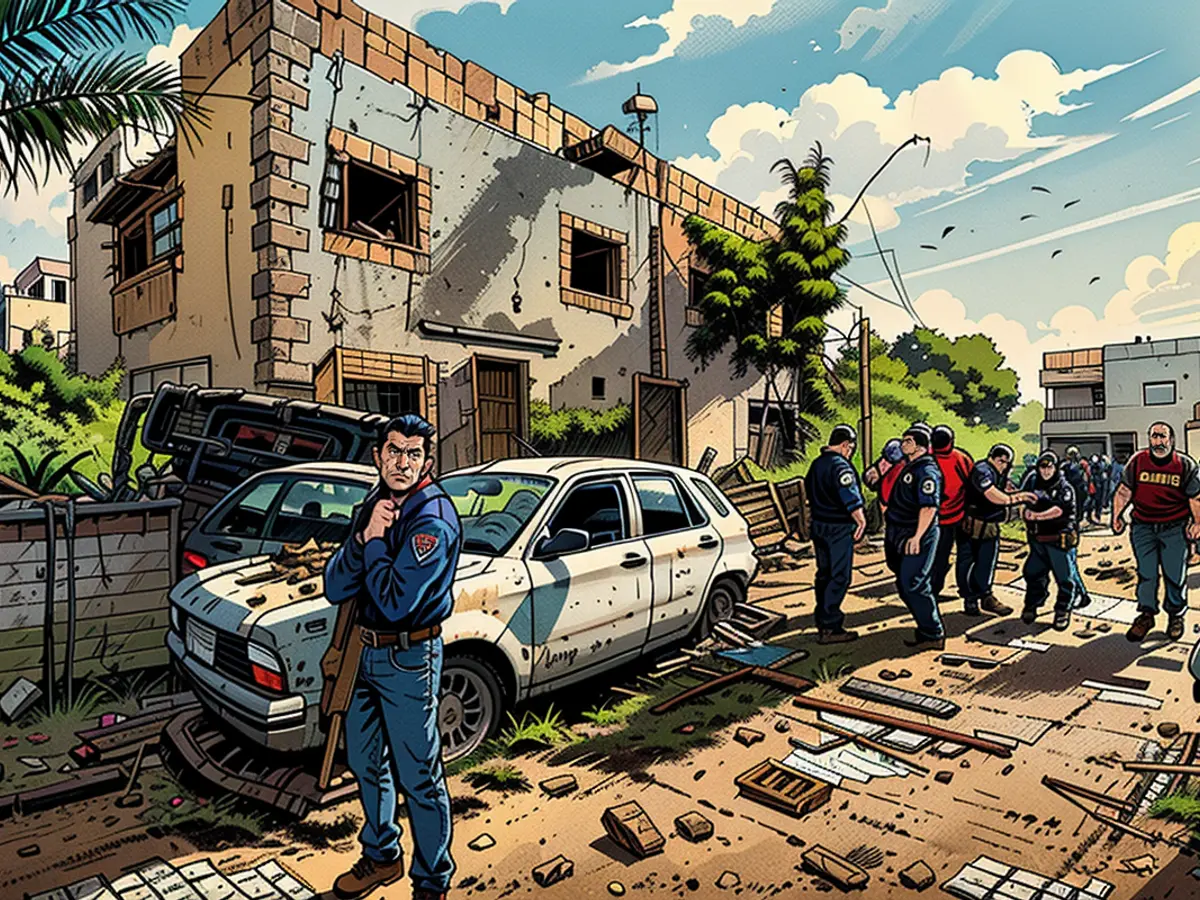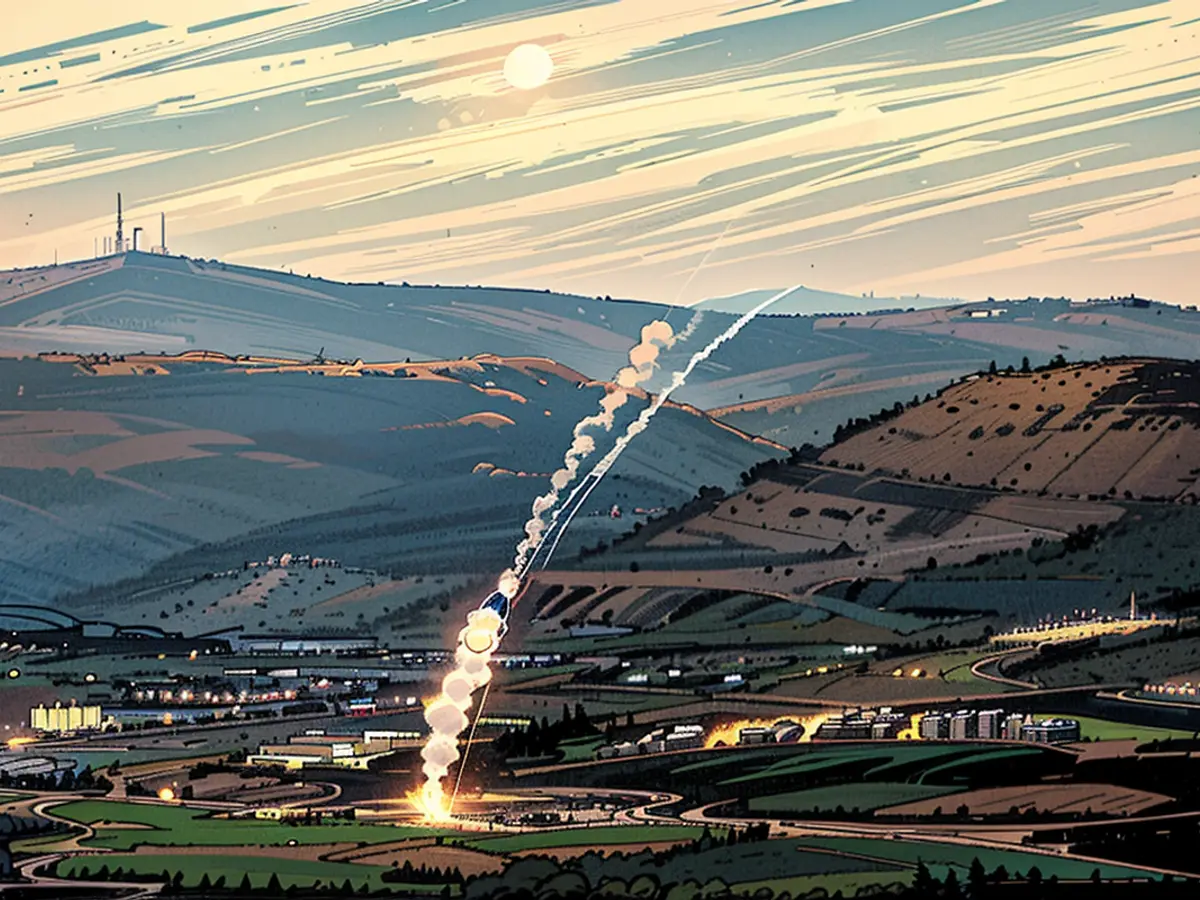Hezbollah and Hamas are not identical entities. Is Israel financially and militarily prepared for another extensive conflict?
The confrontation against Hamas has taken a toll on the Israeli armed forces, with soldiers enduring minimal rest, military officials citing insufficient troops, the economy facing its sharpest downturn in years, and increasing public demand for a ceasefire and hostage negotiation.
The uncertainty remains whether Israel will make the decision – or be forced to – initiate a ground invasion into Lebanon. Yet, the question lingers: Can the nation sustain a second battlefront?
Since October 8, the day following Hamas' lethal assault on Israel, there has been consistent border fire exchanges between Hezbollah and the Israeli military. Hezbollah began firing at Israel to challenge the conflict in Gaza, insisting on a ceasefire there as a prerequisite for ending its hostilities.
Tensions peaked recently when Israel hurt numerous people throughout Lebanon by detonating their pagers and walkie-talkies – devices widely used by Hezbollah. The retaliatory fire escalations that ensued followed.
If Israel chooses to wage full-scale war against Hezbollah, military analysts suggest that the nation would confront an adversary considerably stronger than Hamas – and incur corresponding costs.
"Hezbollah is not Hamas," declared Yoel Guzansky, a senior researcher at the Institute for National Security Studies (INSS) in Tel Aviv, who served in Israel's National Security Council under three prime ministers. Hezbollah is, he stressed, "a state within a state" boasting much more advanced military capabilities than its Gaza counterpart.
Over the weekend, Hezbollah conducted one of its deepest incursions into Israel, with reports of the Israeli military experiencing impacts in Kiryat Bialik, Tsur Shalom, and Moreshet, near Haifa, approximately 40 kilometers (25 miles) south of the border.
The past year's cross-border clashes have already led to more than 62,000 Israeli residents being displaced from their homes in the north, resulting in the deaths of 26 Israeli civilians and 22 soldiers and reservists, as reported by Israeli media. Prior to the weekend's escalation, over 94,000 individuals had been evacuated, with more than 740 fatalities on the Lebanese side, including around 500 Hezbollah fighters, according to Reuters. Israeli attacks since Monday alone have claimed at least another 558 lives and displaced 16,500, as per Lebanese authorities.
Some of Israel's main difficulties in a potential escalating conflict with Hezbollah include:
A stronger adversary
Iran's closest regional ally, the Shiite Islamist group has showcased more sophisticated weaponry in the past year, and also benefits from strategic depth due to its partners and allies across the Middle East – in countries such as Iraq and Yemen.
While Israel's military strength has grown significantly since its last war in Lebanon in 2006, when it did not yet possess its Iron Dome defense system, Hezbollah's armament has evolved as well.
Estimates suggest Hezbollah maintains between 30,000 and 50,000 troops, but earlier this year, its leader Hassan Nasrallah declared its membership exceeds 100,000 active fighters and reservists. Hezbollah is additionally believed to possess between 120,000 and 200,000 rockets and missiles.
Its most formidable military asset is the long-range ballistic missile, with reports estimating it holds thousands, including over 1,500 precision missiles with ranges of 250–300 kilometers (155–186 miles).
During the weekend attack, Hezbollah claimed it struck Israel's Ramat David airbase with Fadi 1 and Fadi 2 missiles, more powerful weapons believed to have been employed for the first time. The base is located approximately 30 miles from the Lebanese border.

The Israeli military did not respond to requests for comment regarding whether the base was affected. Israeli emergency services reported three casualties resulting from the attacks.
Behnam Ben Taleblu, a senior fellow at the Foundation for Defense of Democracies think tank in Washington DC who specializes in Iran and its proxies, suggested that "the warhead weight of these projectiles is similar to the heavy Burkan IRAM (improved rocket assisted munition) first introduced last winter against Israel by Hezbollah, but at significantly longer range."
Hezbollah's attacks using these projectiles, according to Ben Taleblu, "represent a way for the group to maintain its credibility without sacrificing its leadership following the communications attacks and strike on senior leaders last week by Israel."
Mizrahi suggested that much of Israel's capacity to engage a two-front war rests upon US support.
"The IDF (Israel Defense Forces) can battle both fronts for an extended period, and we possess the capabilities to carry out it as long as we obtain the ammunition from the Americans," Orna Mizrahi, a Hezbollah expert at INSS, stated, adding that in the event of a full-scale war, the US would likely intervene to support Israel.
Israel also enjoys a substantial intelligence advantage, particularly evident in last week's remarkable strikes on Hezbollah's communications.
Military analysts and military authorities cited in Israeli news sources claim that the Israeli Defense Forces (IDF) is encountering shortages.
At the commencement of the conflict against Hamas, the military scooped up around 295,000 reservists to beef up their numbers. However, this figure is falling short.
The hostilities in Gaza and other locations have also placed a heavy burden on the soldiers, as of now, 715 have lost their lives since October 7, including those in the north.
"This is the longest (conflict) of its kind in Israel's history, longer than the War of Independence in 1948," Guzansky remarked, going on to say that this is what Hezbollah and Iran aim for, "to gradually weaken Israel."
"To launch rockets daily, at a lower scale, and to exhaust the IDF, to overstretch the IDF," he opined.
A struggling economy
Israel's economy has suffered greatly due to the ongoing conflict in Gaza, taking a significant hit from the outset of the October 7 hostilities. Tens of thousands of businesses have been impacted as reservists put aside their civilian lives to serve, and the country's economy is witnessing a severe shrinkage.
"It's disastrous for the Israeli economy, for the Israeli society," Guzansky commented, emphasizing that the repercussions will linger for years to come.

Of the 38 countries in the Organization for Economic Cooperation and Development (OECD), Israel exhibited the most pronounced economic deceleration between April and June of this year, as per the organization's quarterly report.
According to OECD statistics, Israel's economy took a hit of 4.1% in the initial stages of the conflict in Gaza, and the contraction continued, although at a slower pace, throughout the first and second quarters of 2024.
The shrinking economy coincides with an exponential increase in military spending by Israel. Earlier this year, Amir Yaron, governor of Israel's central bank, forecasted that the conflict would cost Israel between 2023 and 2025 around 253 billion Israeli shekels ($67 billion), as reported by Israeli media. This amount equates to about 13% of Israel's GDP, on top of its regular military expenditure, which has consistently hovered between 4.5% and 6.5% of GDP, as per World Bank data.
The escalation of the conflict has also affected Israel's credit rating, making borrowing more costly for the country, with multiple rating agencies downgrading it since the start of the conflict.
Credit ratings agency Moody's stated last month that an all-out war with Hezbollah or Iran could have substantial "credit implications for Israeli debt issuers."
A legitimacy crisis
A second front, particularly one that could inflict more damage on Lebanon than on Israel, could serve as a final blow for several countries already skeptical of Israel's involvement in Gaza, experts argued.
The global sympathy that Israel received initially following the October 7 hostilities has turned into pointed criticism as Israel now faces accusations of war crimes and genocide in international tribunals, which it vehemently denies.
Domestically, though support for the conflict in Gaza grew among Israelis at its onset, polls indicate that it has dwindled over the past months.
Regarding a war against Hezbollah, Israelis present a divided viewpoint.
A poll published by the Israel Democracy Institute think tank in July revealed that 42% of Israelis believe their country should pursue a diplomatic settlement with Hezbollah, despite the potential for further conflict, whereas 38% believe Israel should strive for a military triumph against the group, even at the cost of significant harm to civilian areas.
Despite the divergent opinions, there is now less support for a war against Hezbollah compared to the responses in late 2023, the poll indicated.
Guzansky stated that pressure for war may be more palpable in northern Israel, where "people who have lost their businesses, families (are) torn apart... people (are) dying."
Many of these residents, who have lived near the frontline for nearly a year, believe that "only a full-scale war can alter the reality in the north," he added.

In light of the ongoing tensions with Hezbollah, concerns have arisen about the sustainability of another conflict for Israel. The Middle East, being Hezbollah's region of operation, is closely connected to this situation.
Moreover, the complexity of a potential war against Hezbollah becomes evident when considering its advanced military capabilities and strategic depth, thanks to its partners and allies across the Middle East, such as Iraq and Yemen.







